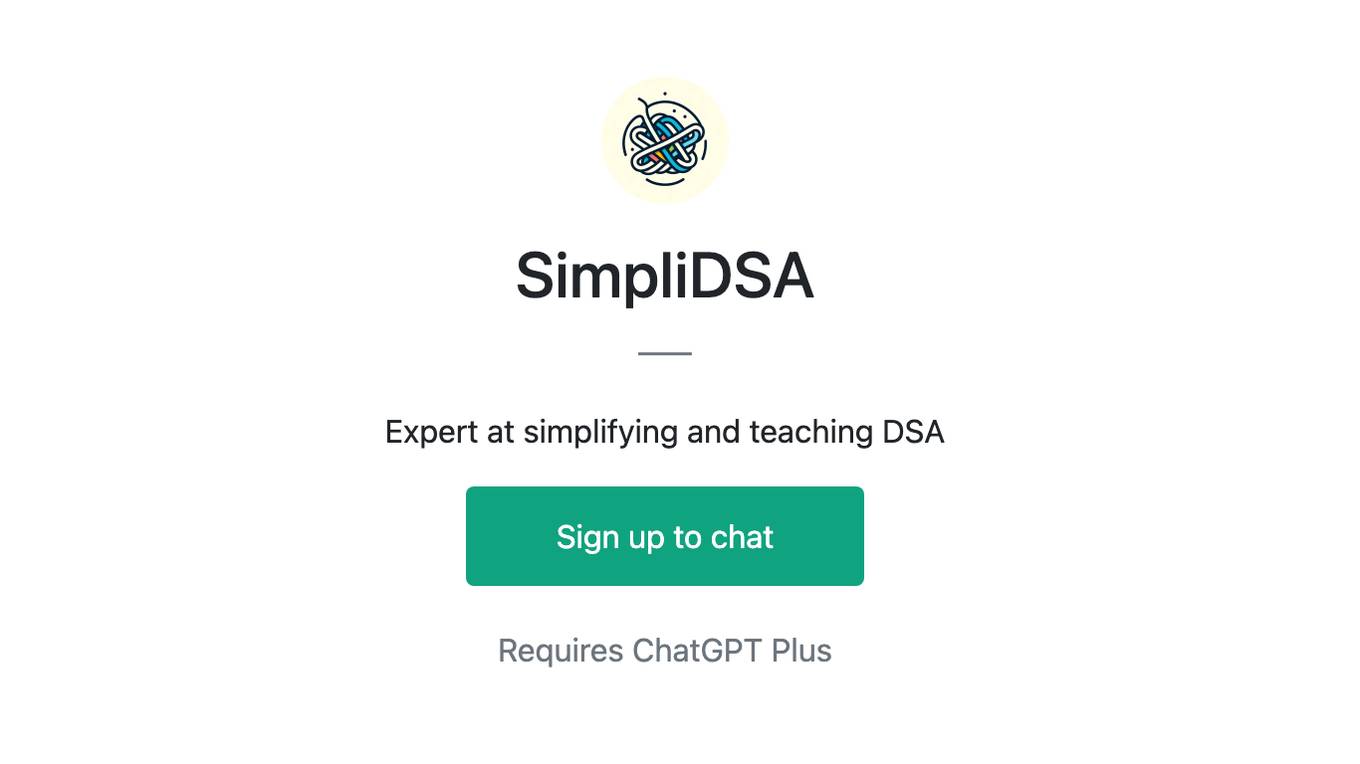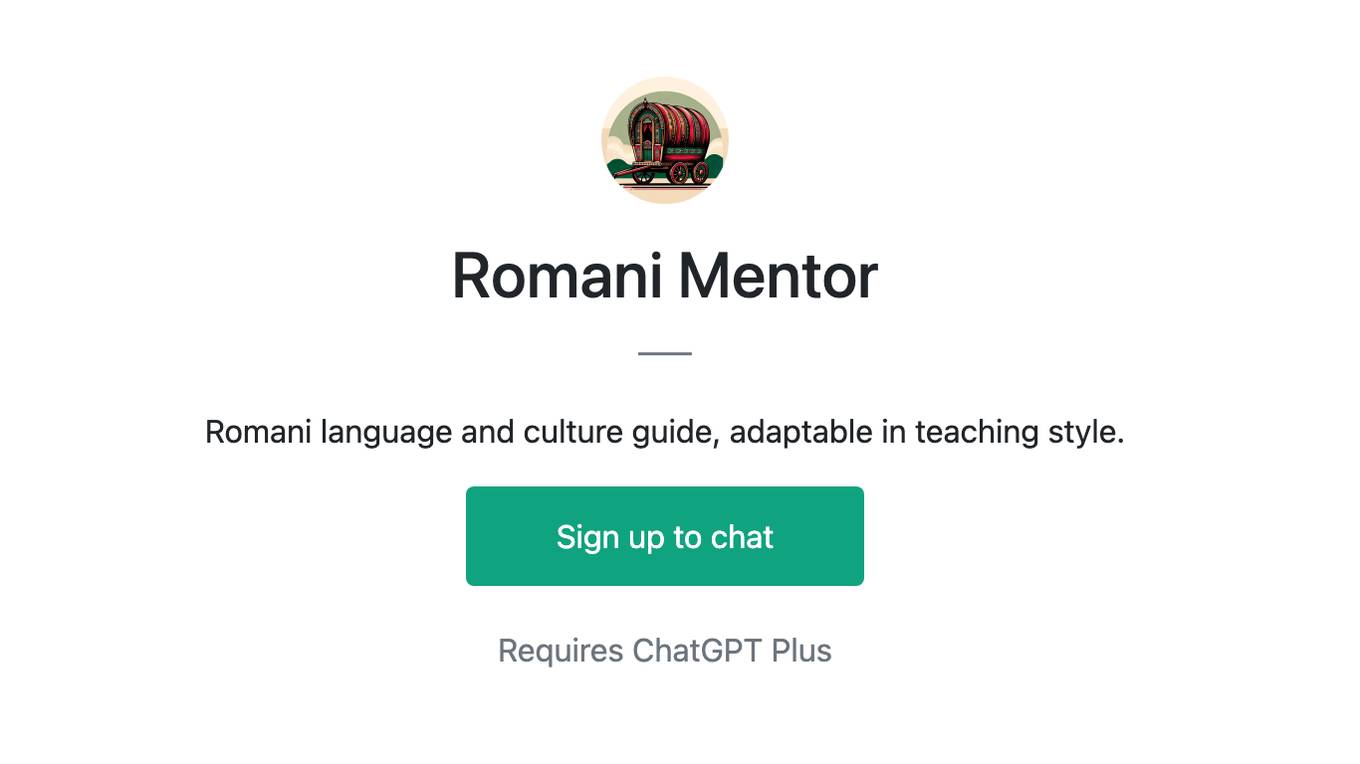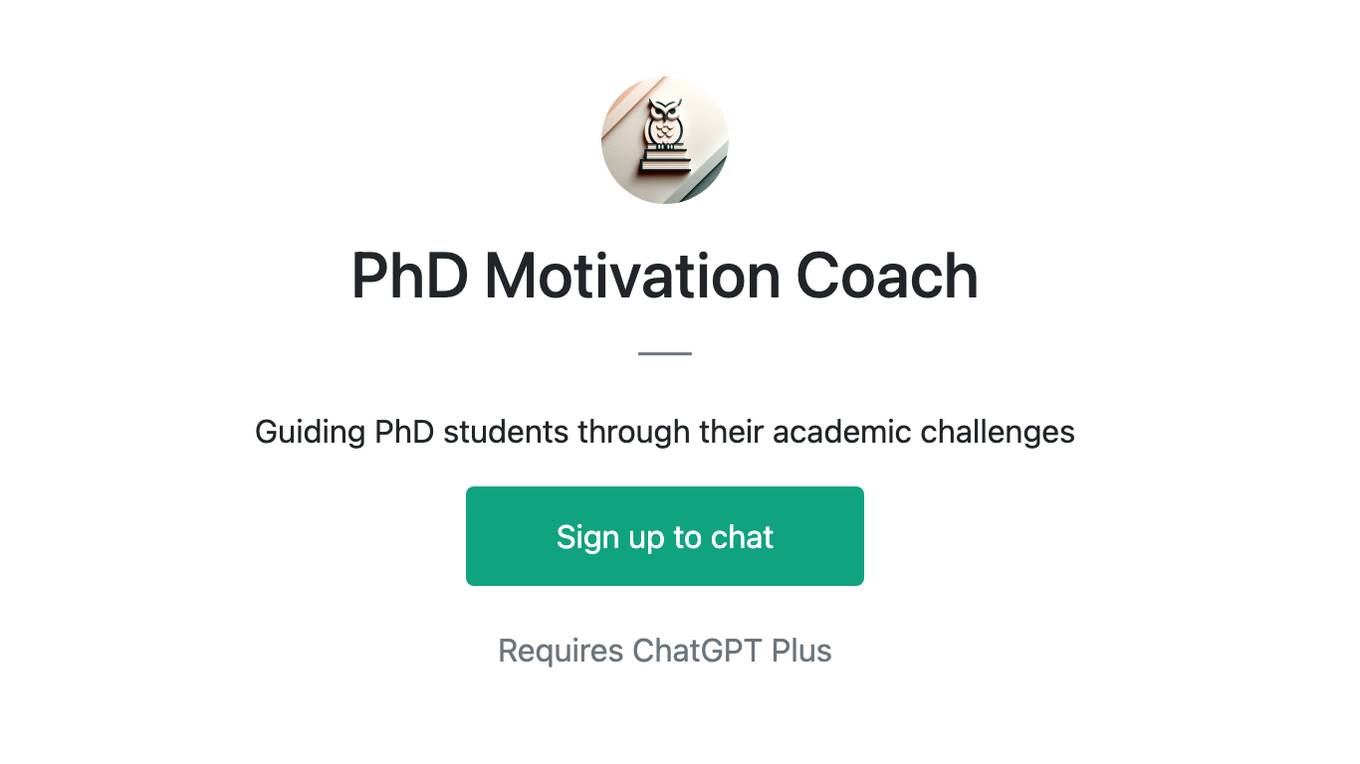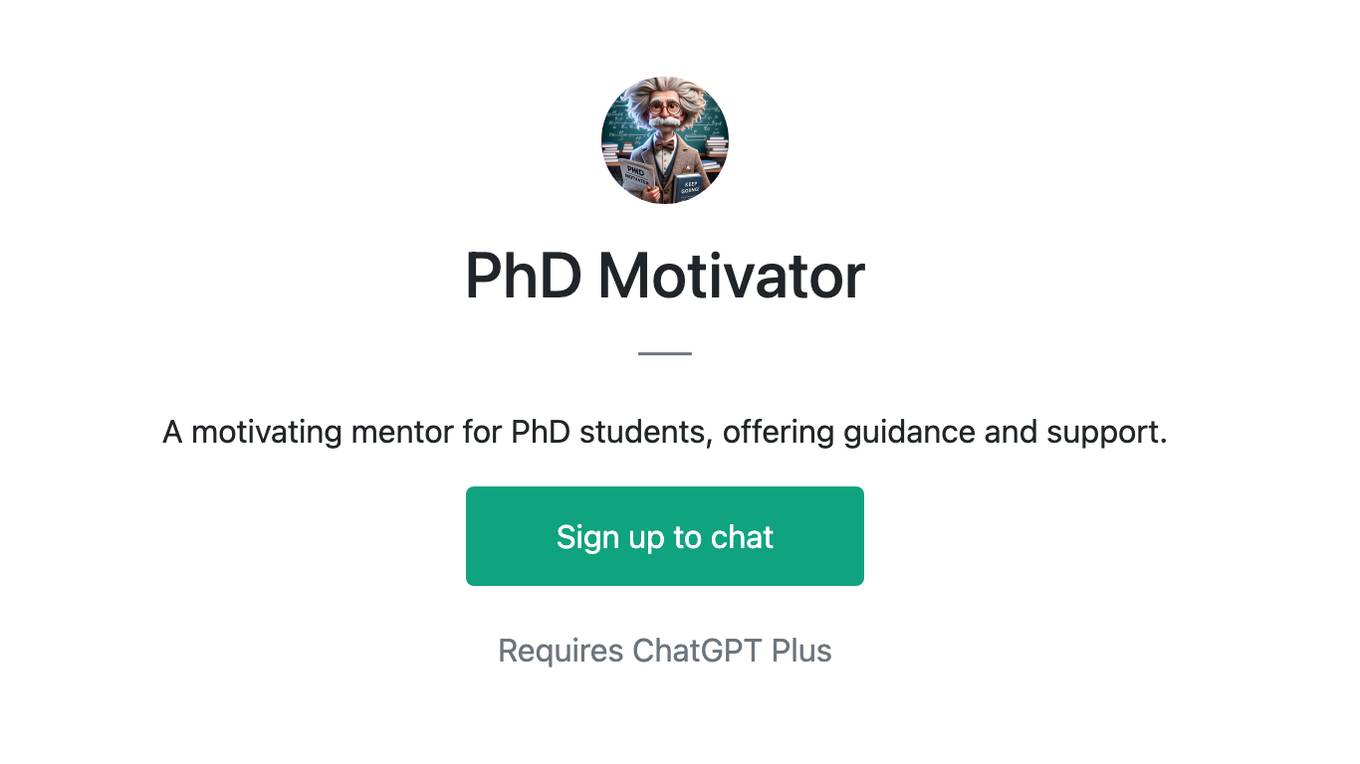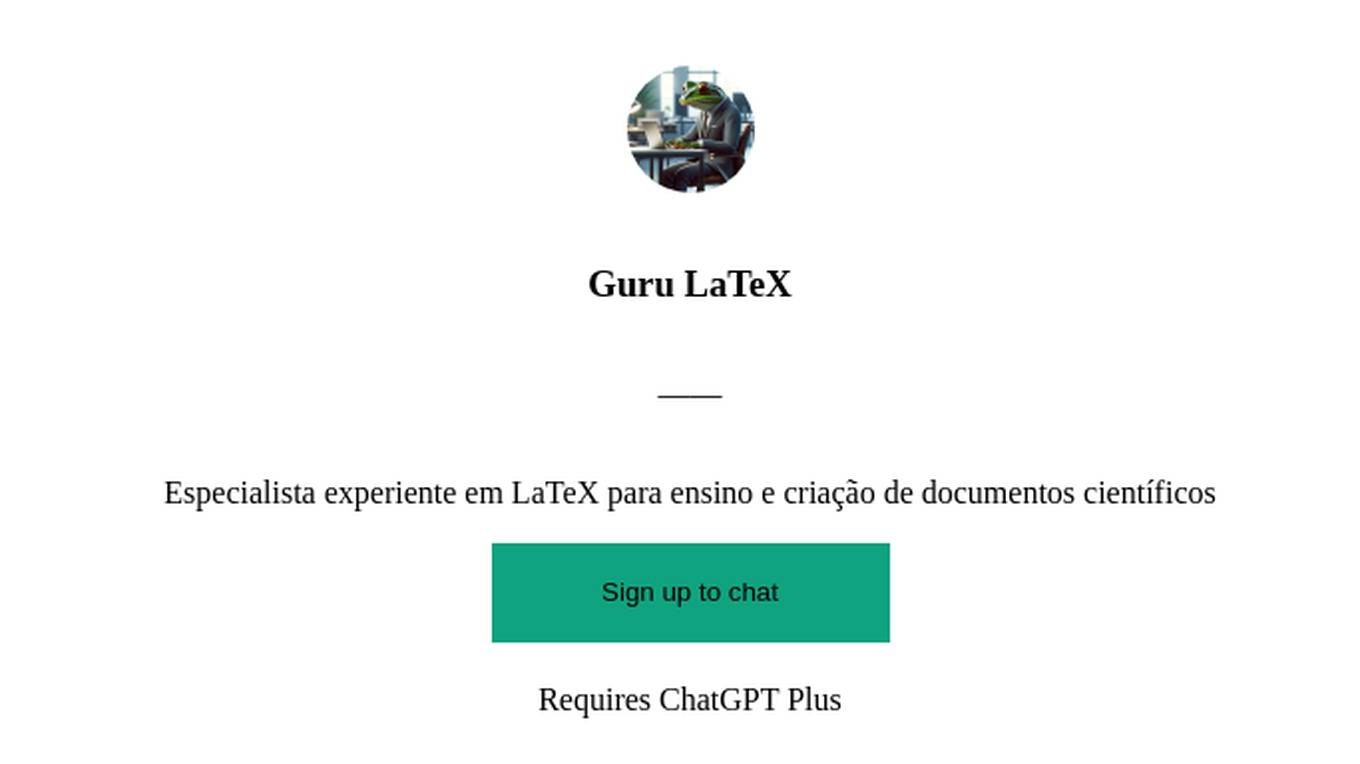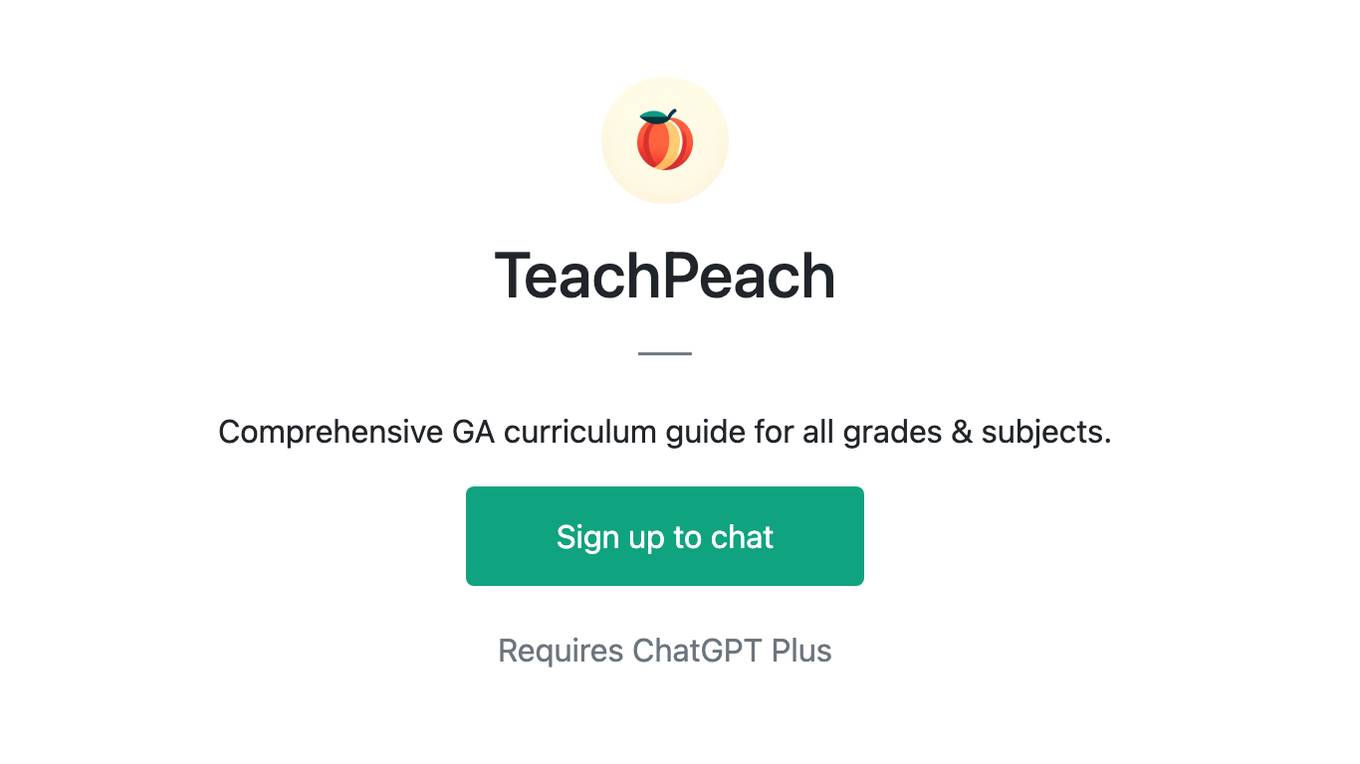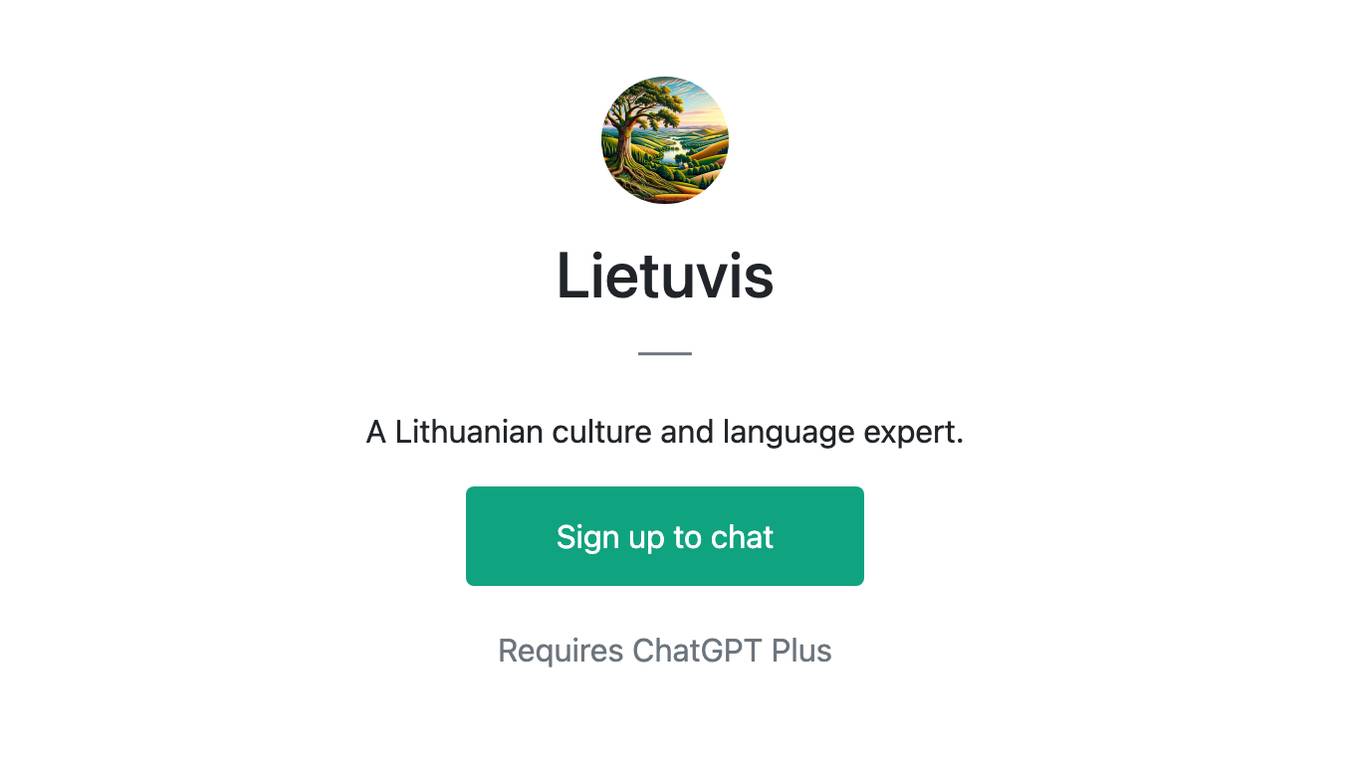Best AI tools for< Research Teaching Methods >
20 - AI tool Sites
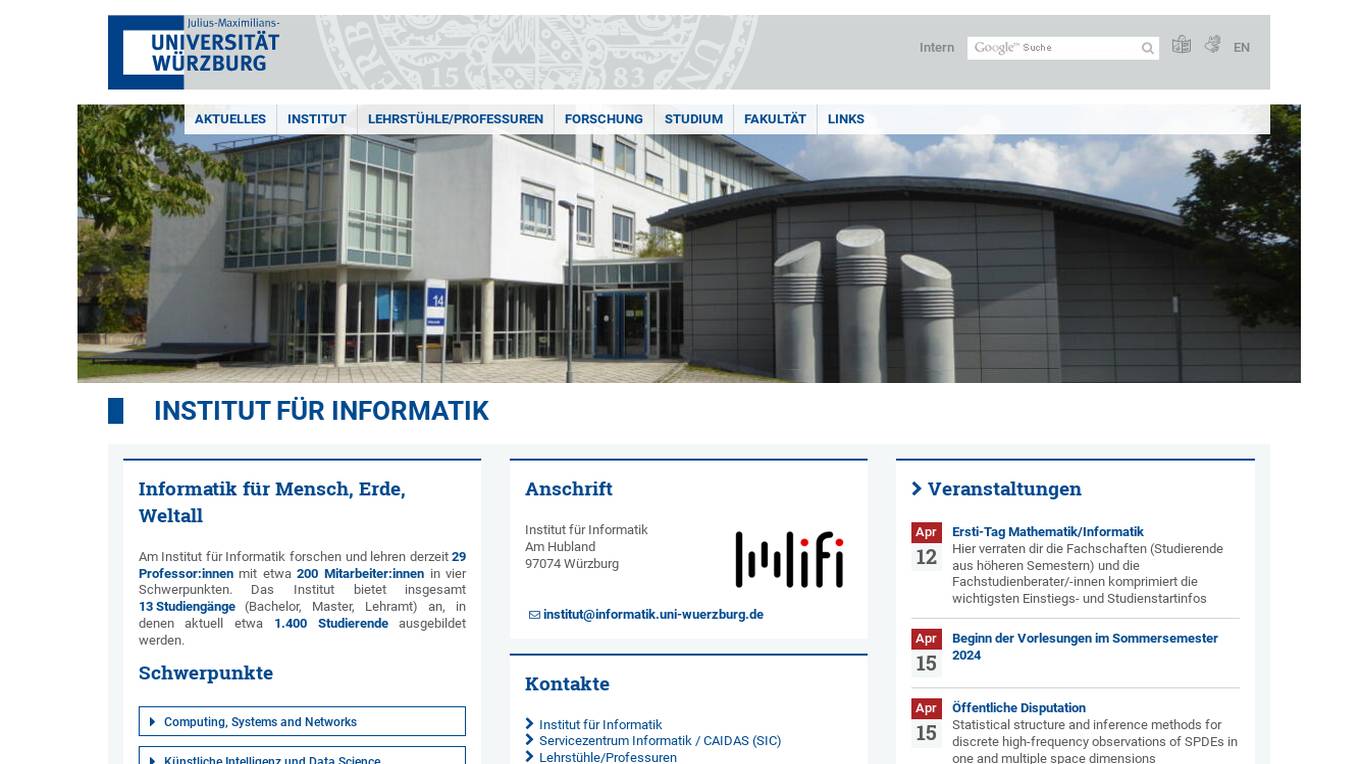
Institute of Computer Science, University of Würzburg
The Institute of Computer Science at the University of Würzburg is a leading research and teaching institution in the field of computer science. With 29 professors and around 200 employees, the institute offers a wide range of study programs, including bachelor's, master's, and teaching degrees. The institute's research focuses on four main areas: Computing, Systems and Networks; Artificial Intelligence and Data Science; Human-Centered Computing; and Aerospace and Robotics.
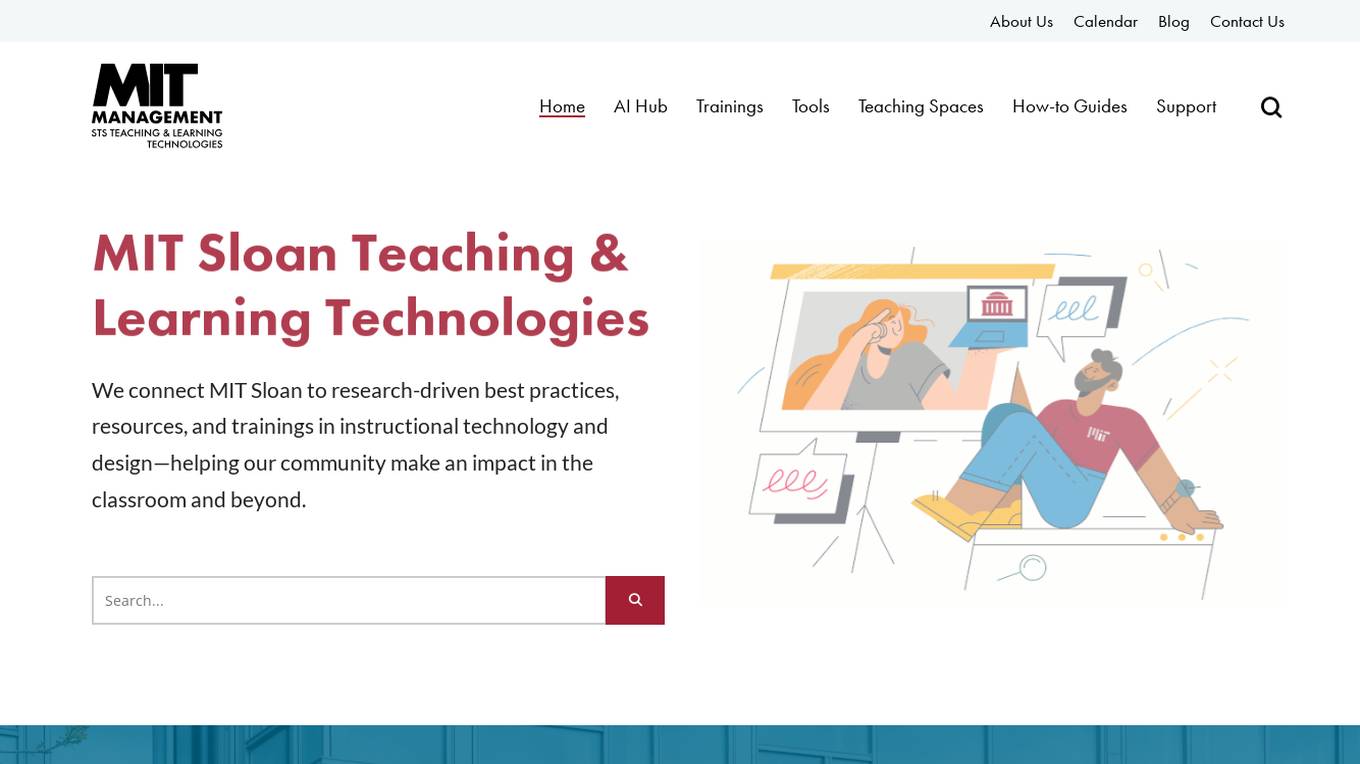
MIT Sloan Teaching & Learning Technologies
MIT Sloan Teaching & Learning Technologies connects MIT Sloan to research-driven best practices, resources, and training in instructional technology and design. They help the community make an impact in the classroom and beyond. They offer various services such as trainings, practice sessions, how-to guides, consultations, and a teaching studio. Their latest news and announcements include supporting learning with AI-generated images, providing students with access to Microsoft Copilot, and making Microsoft Copilot available for faculty and staff.
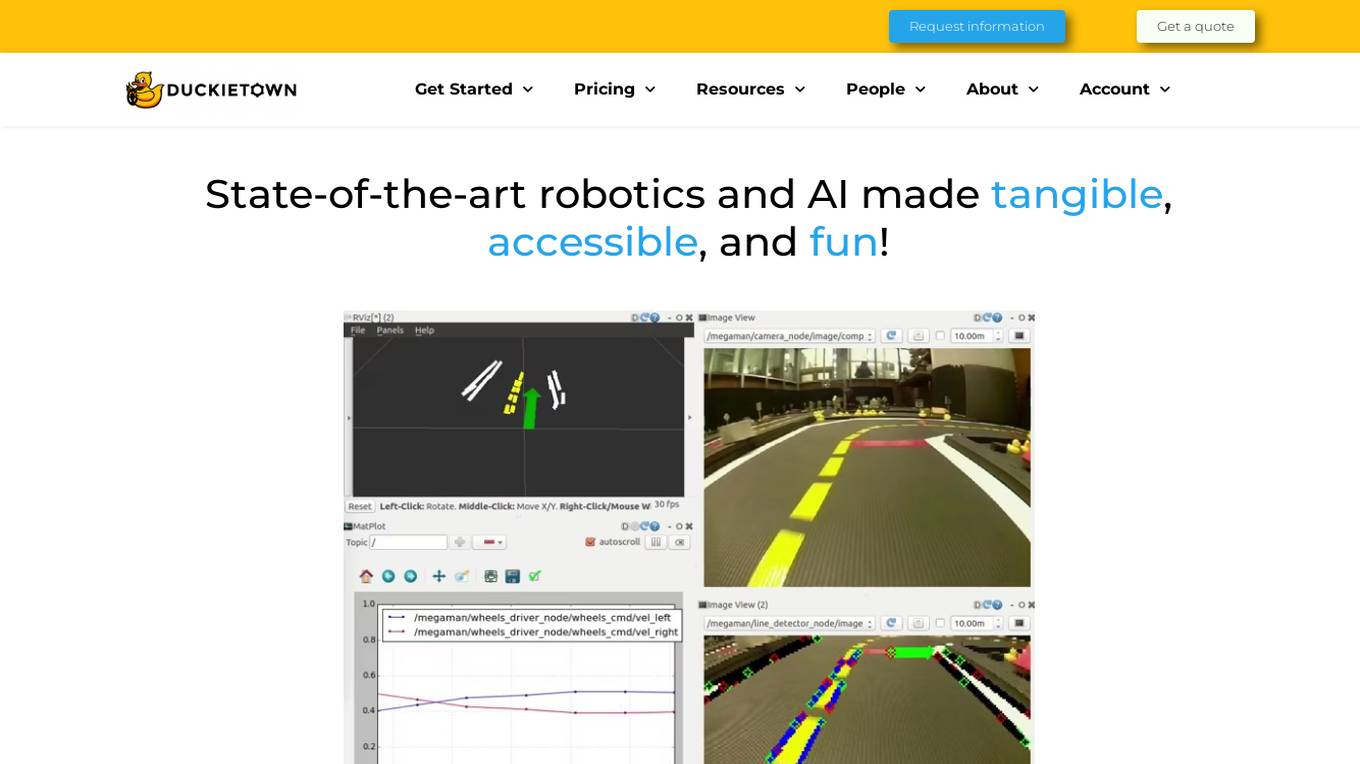
Duckietown
Duckietown is a platform for delivering cutting-edge robotics and AI learning experiences. It offers teaching resources to instructors, hands-on activities to learners, an accessible research platform to researchers, and a state-of-the-art ecosystem for professional training. Duckietown's mission is to make robotics and AI education state-of-the-art, hands-on, and accessible to all.

EdTechTeacher
EdTechTeacher is an innovative AI tool designed to support educators and schools in integrating artificial intelligence into teaching and learning. The platform offers professional development services, workshops, coaching, and resources to help educators enhance their teaching practices with AI technology. EdTechTeacher also collaborates with edtech businesses and organizations to promote equity and inclusion in education through research, partnerships, and software audits.

Science in the News
Science in the News is a Harvard graduate student organization with a mission to bridge the communication gap between scientists and non-scientists. It provides a platform for researchers to share their work with the wider community in an accessible and engaging way. The website features articles, podcasts, videos, and other resources on a wide range of scientific topics, including astronomy, biology, chemistry, computer science, and physics.
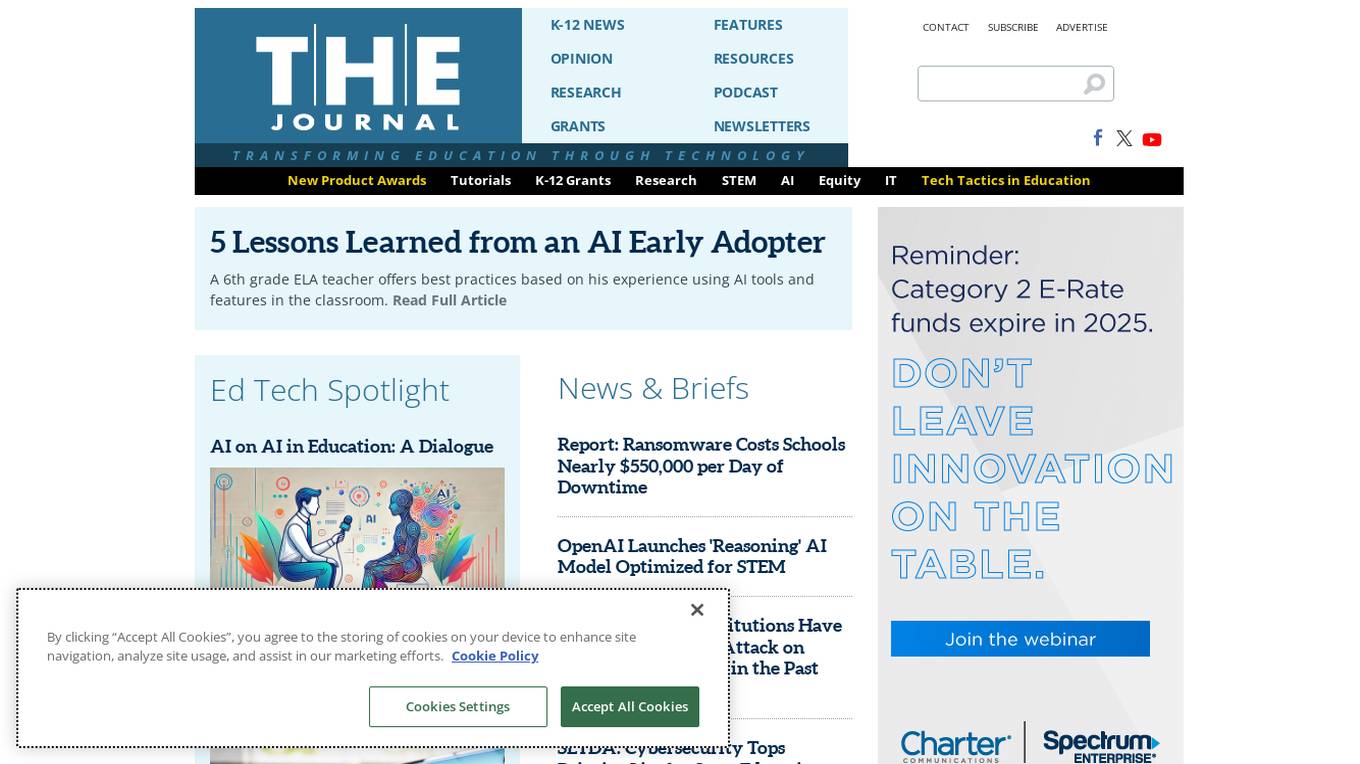
THE Journal
THE Journal is an AI-powered educational technology platform that focuses on providing the latest news, insights, and resources related to technology in education. It covers a wide range of topics such as cybersecurity, AI applications in education, STEM education, and emerging trends in educational technology. THE Journal aims to transform education through the integration of technology, offering valuable information to educators, administrators, and policymakers to enhance teaching and learning experiences.
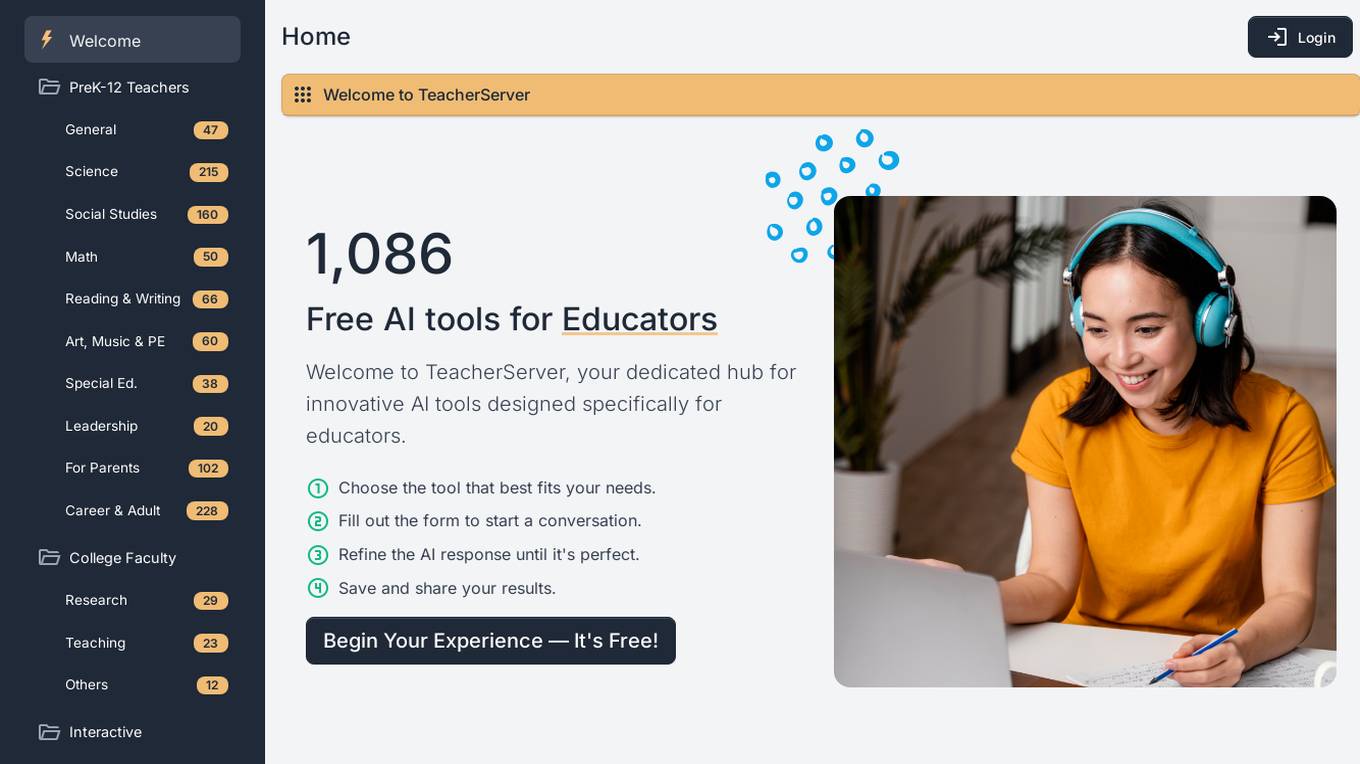
TeacherServer
TeacherServer is a platform offering a wide range of free AI tools specifically designed for educators, from PreK-12 teachers to college faculty. The platform provides tools for various subjects and purposes, such as lesson plan generators, worksheet generators, and curriculum quiz makers. TeacherServer prioritizes speed, privacy, and security by using a locally installed AI server, ensuring faster results without delays and processing data locally to maintain user privacy. The platform is free to use, adheres to education guidelines, and offers a supportive community through forums and research briefs.
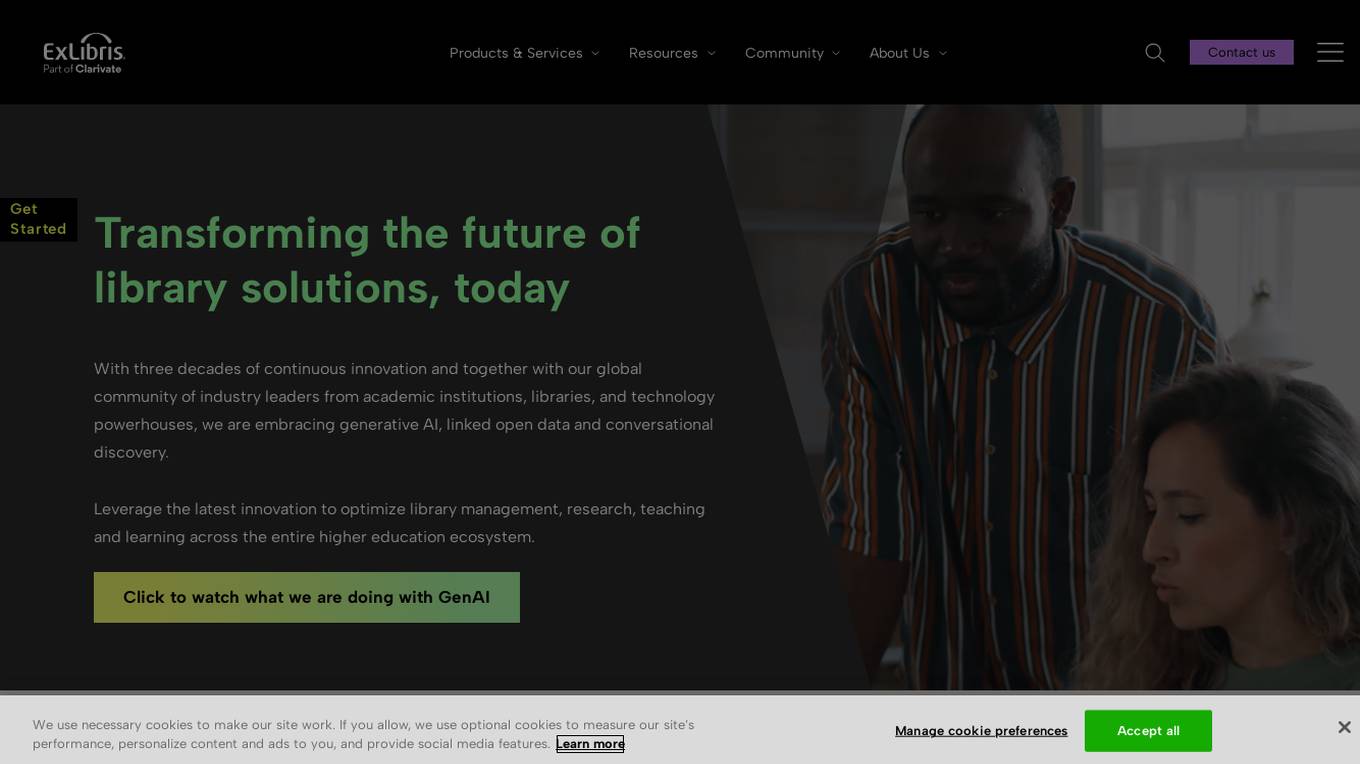
Ex Libris Products & Services
The website is a comprehensive platform offering a suite of software solutions for library management, research, teaching, and learning in the higher education ecosystem. It leverages generative AI, linked open data, and conversational discovery to optimize operations, integration, personalized experiences, and analytic insights. The platform includes various products and services such as Alma, Primo, Leganto, Rapido, Rosetta, and campusM, catering to the unique needs of academic institutions, libraries, and technology powerhouses. The website features success stories, customer testimonials, webinars, learning resources, and community engagement initiatives.
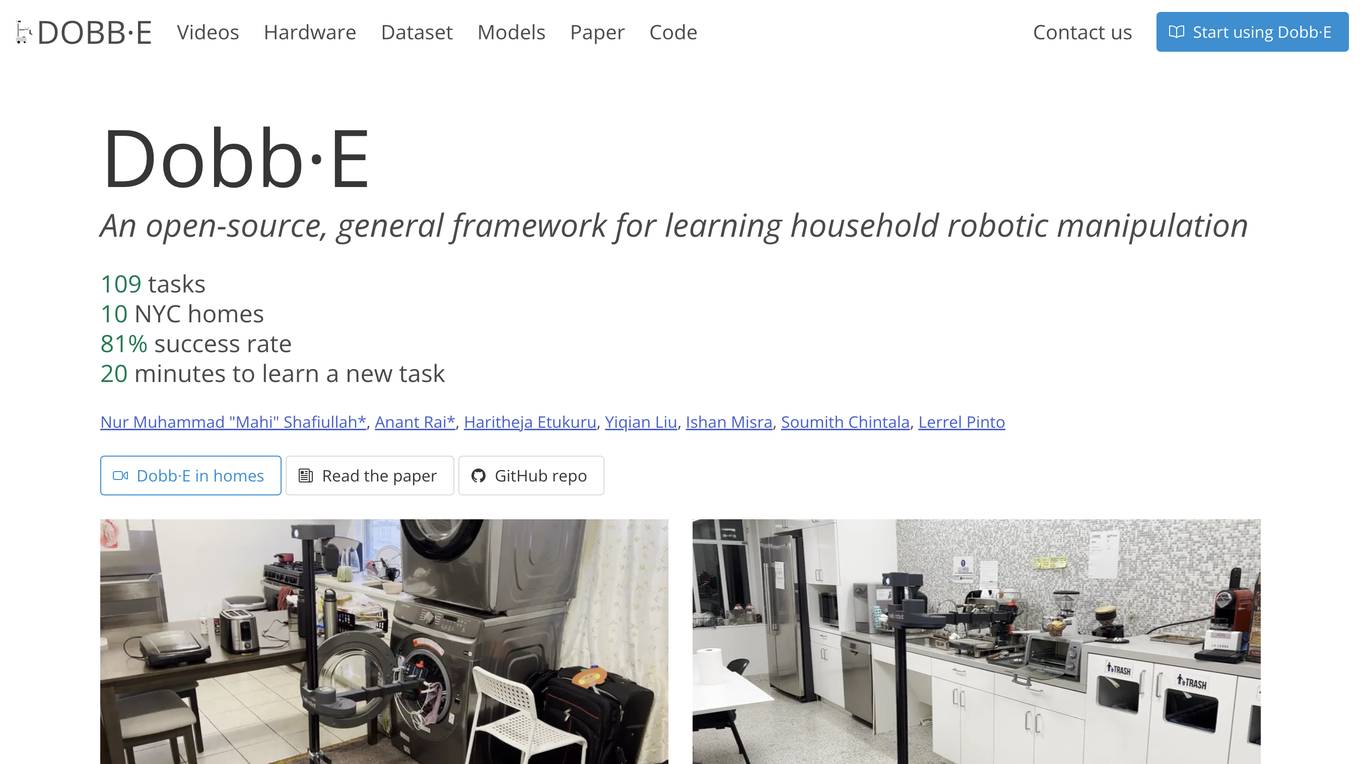
Dobb·E
Dobb·E is an open-source, general framework for learning household robotic manipulation. It aims to create a 'generalist machine' for homes, a domestic assistant that can adapt and learn various tasks cost-effectively. Dobb·E can learn a new task with just five minutes of demonstration, achieving an 81% success rate in 10 NYC homes. The system is designed to accelerate research on home robots and eventually enable robot butlers in every home.
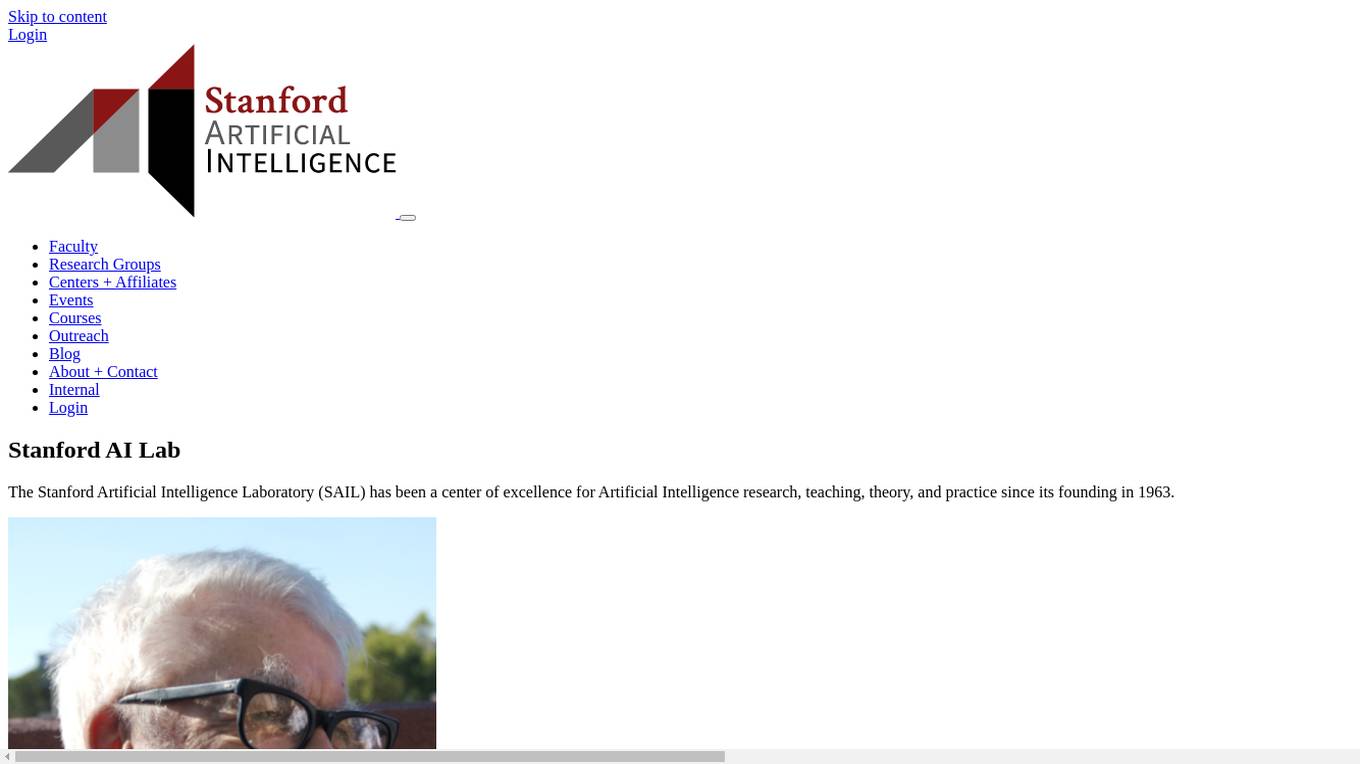
Stanford Artificial Intelligence Laboratory
The Stanford Artificial Intelligence Laboratory (SAIL) is a center of excellence for Artificial Intelligence research, teaching, theory, and practice since its founding in 1963. SAIL faculty and students are committed to developing the theoretical foundations of AI, advancing the state-of-the-art in AI technologies, and applying AI to address real-world problems. SAIL is a vibrant and collaborative community of researchers, students, and staff who are passionate about AI and its potential to make the world a better place.
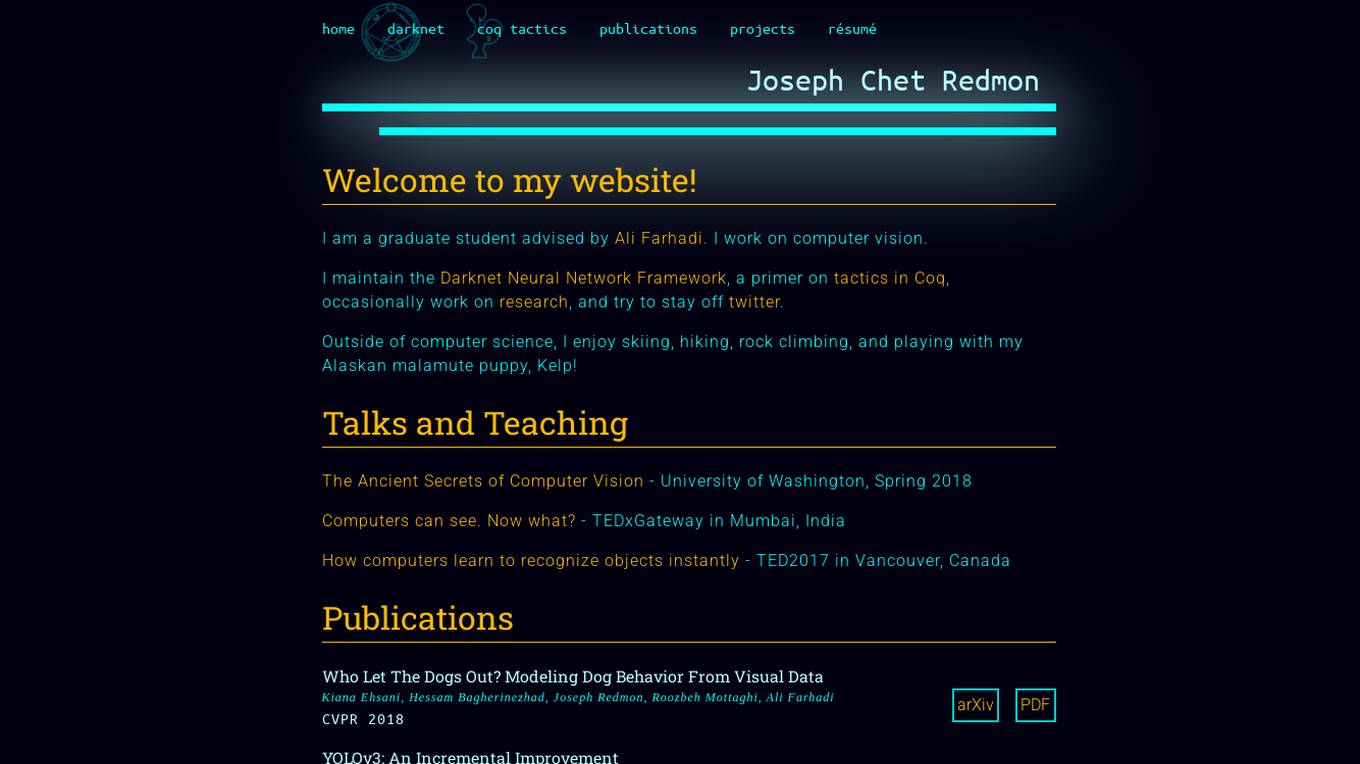
Joseph Chet Redmon's Computer Vision Platform
The website is a platform maintained by Joseph Chet Redmon, a graduate student working on computer vision. It features information on his projects, publications, talks, and teaching activities. The site also includes details about the Darknet Neural Network Framework, tactics in Coq, and research work. Visitors can learn about computer vision, object recognition, and visual question answering through the resources provided on the site.

Rabbit r1
Rabbit r1 is an AI tool that offers AI in action for just $199 without any subscription required. It provides a playground for learning and teaching AI, along with research resources and newsroom updates. Users can explore the rabbit os for unlimited AI stock options. The tool also allows users to make purchases and track orders seamlessly.
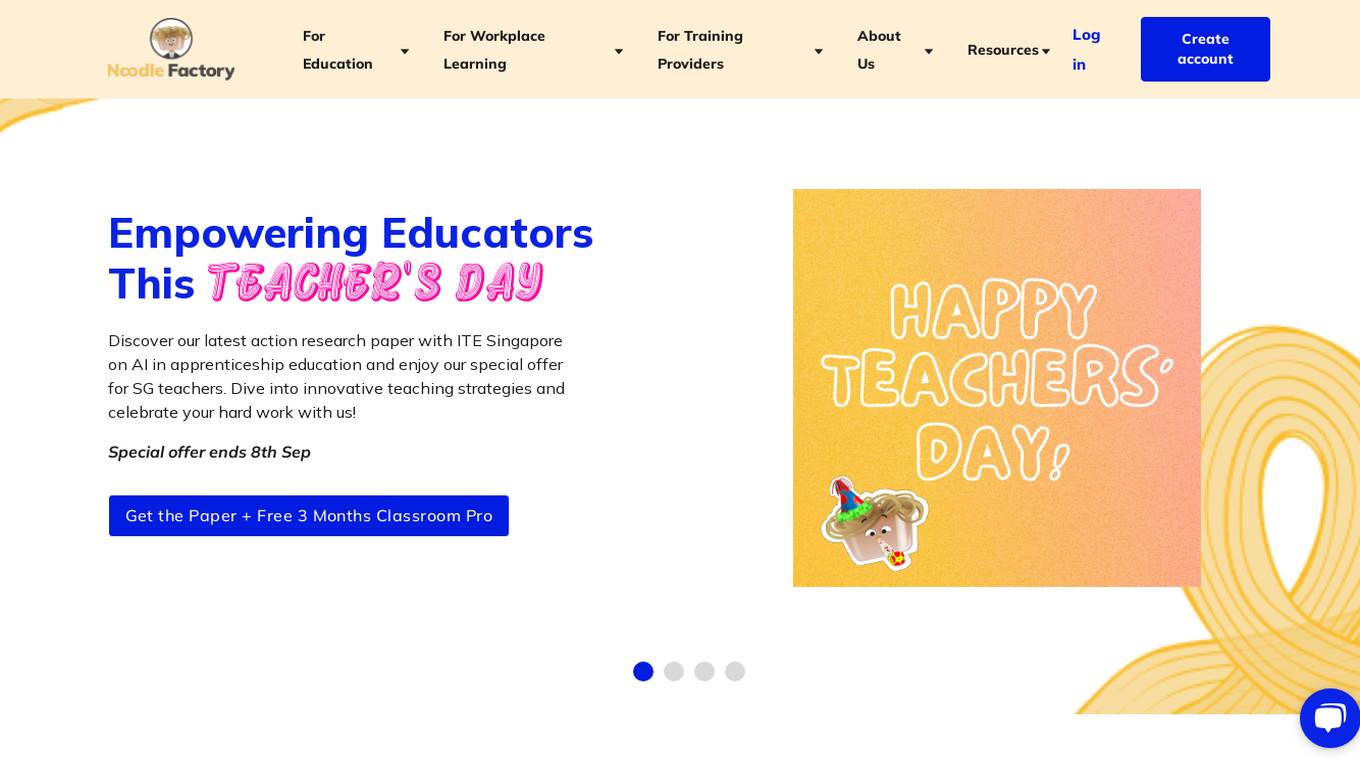
Noodle Factory
Noodle Factory is an AI-powered teaching assistant platform that enables users to effortlessly create AI learning assistants for education. The platform integrates with existing content to provide personalized tutoring, mentoring, and knowledge checks. It offers a secure and flexible solution supporting education at all levels. Noodle Factory empowers educators with innovative teaching strategies and celebrates their hard work through research-based learning outcomes and ethical AI practices.

Petrie-Flom Center at Harvard Law School
The Petrie-Flom Center at Harvard Law School is a leading center for the study of health law and policy. The Center's mission is to improve the health of the public through research, teaching, and advocacy. The Center's work focuses on a wide range of health law and policy issues, including access to care, the regulation of health care providers, and the ethical and legal implications of new health technologies.

Codingem
Codingem is a website dedicated to software development and technology. It offers courses in programming languages like Swift, iOS, Python, and JavaScript. The site also provides reviews and resources on various AI tools and software applications, including AI writing tools, AI art generators, AI headshot generators, and more. Codingem aims to be a comprehensive platform for developers, marketers, teachers, students, and researchers to explore and utilize AI-powered tools for various tasks.
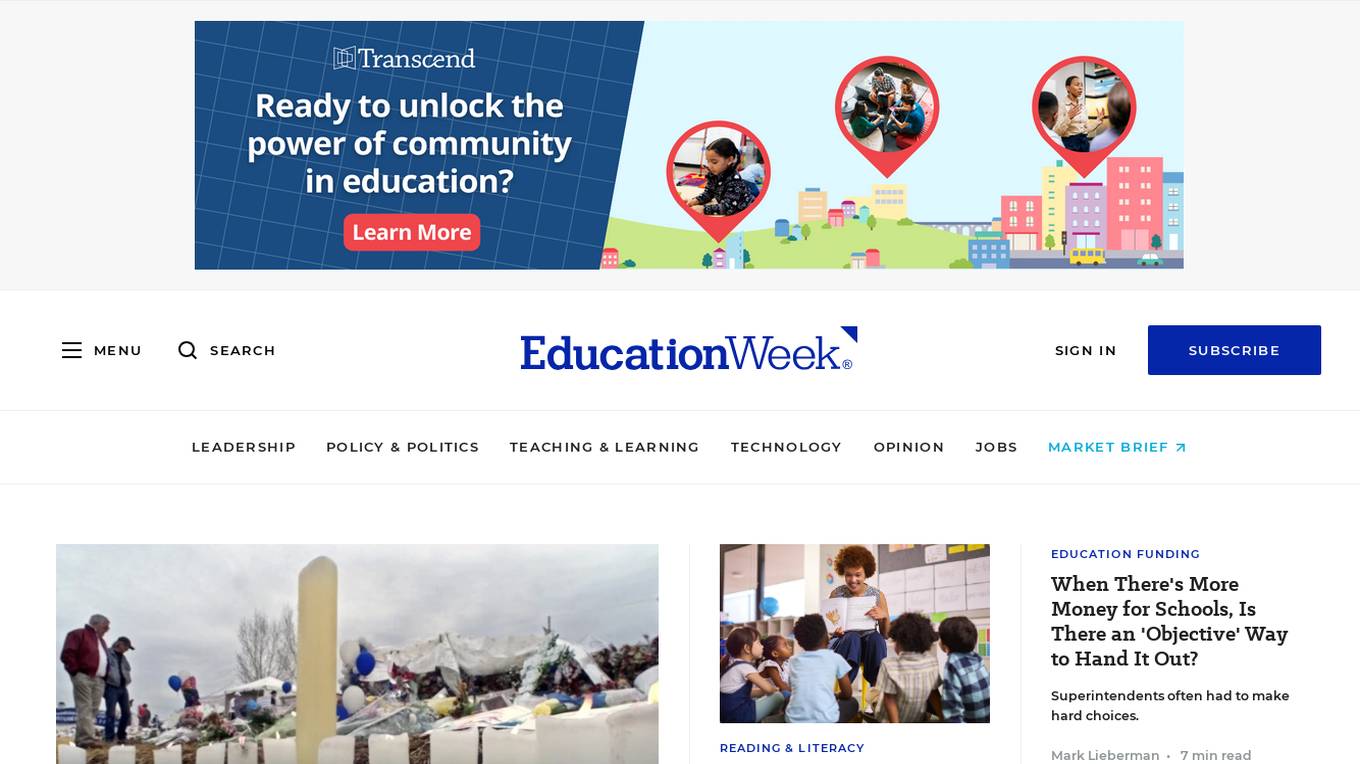
Education Week
Education Week is a website that provides news and information on K-12 education. It covers a wide range of topics, including leadership, policy and politics, teaching and learning, technology, and student well-being. The website also provides resources for educators, such as lesson plans, professional development opportunities, and research reports.
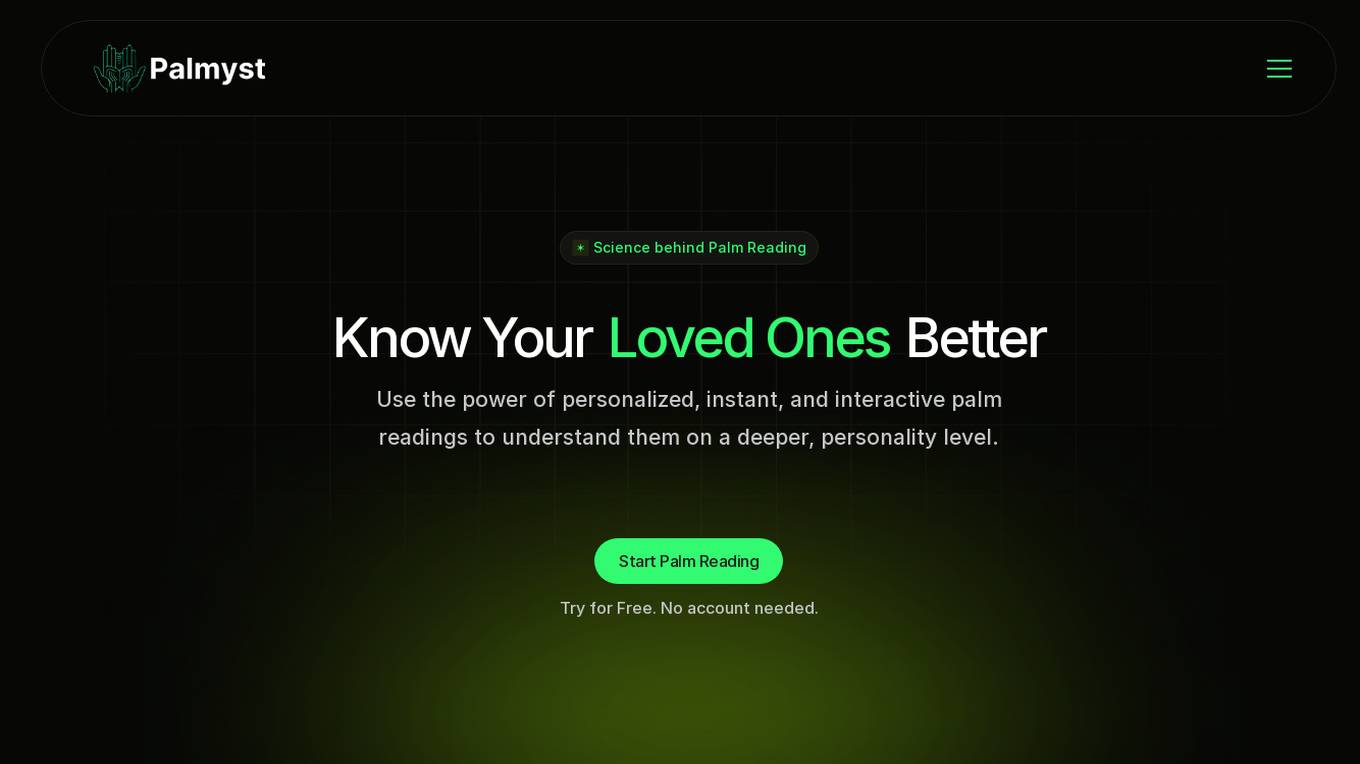
Palmyst
Palmyst is an AI-powered palm reading application that offers personalized, instant, and interactive palm readings to help users gain insights into various aspects of their lives, including financial health, career opportunities, personal growth, physical health, and relationships. The app uses advanced AI technology to analyze palm lines and patterns, providing accurate and detailed insights. Users can ask questions based on the readings to make informed decisions. Palmyst aims to objectively assess the ancient teachings of palmistry using modern research, data analysis, and AI, driven by evidence and scientific inquiry.

Google Research
Google Research is a leading research organization focusing on advancing science and artificial intelligence. They conduct research in various domains such as AI/ML foundations, responsible human-centric technology, science & societal impact, computing paradigms, and algorithms & optimization. Google Research aims to create an environment for diverse research across different time scales and levels of risk, driving advancements in computer science through fundamental and applied research. They publish hundreds of research papers annually, collaborate with the academic community, and work on projects that impact technology used by billions of people worldwide.

Google Research
Google Research is a team of scientists and engineers working on a wide range of topics in computer science, including artificial intelligence, machine learning, and quantum computing. Our mission is to advance the state of the art in these fields and to develop new technologies that can benefit society. We publish hundreds of research papers each year and collaborate with researchers from around the world. Our work has led to the development of many new products and services, including Google Search, Google Translate, and Google Maps.
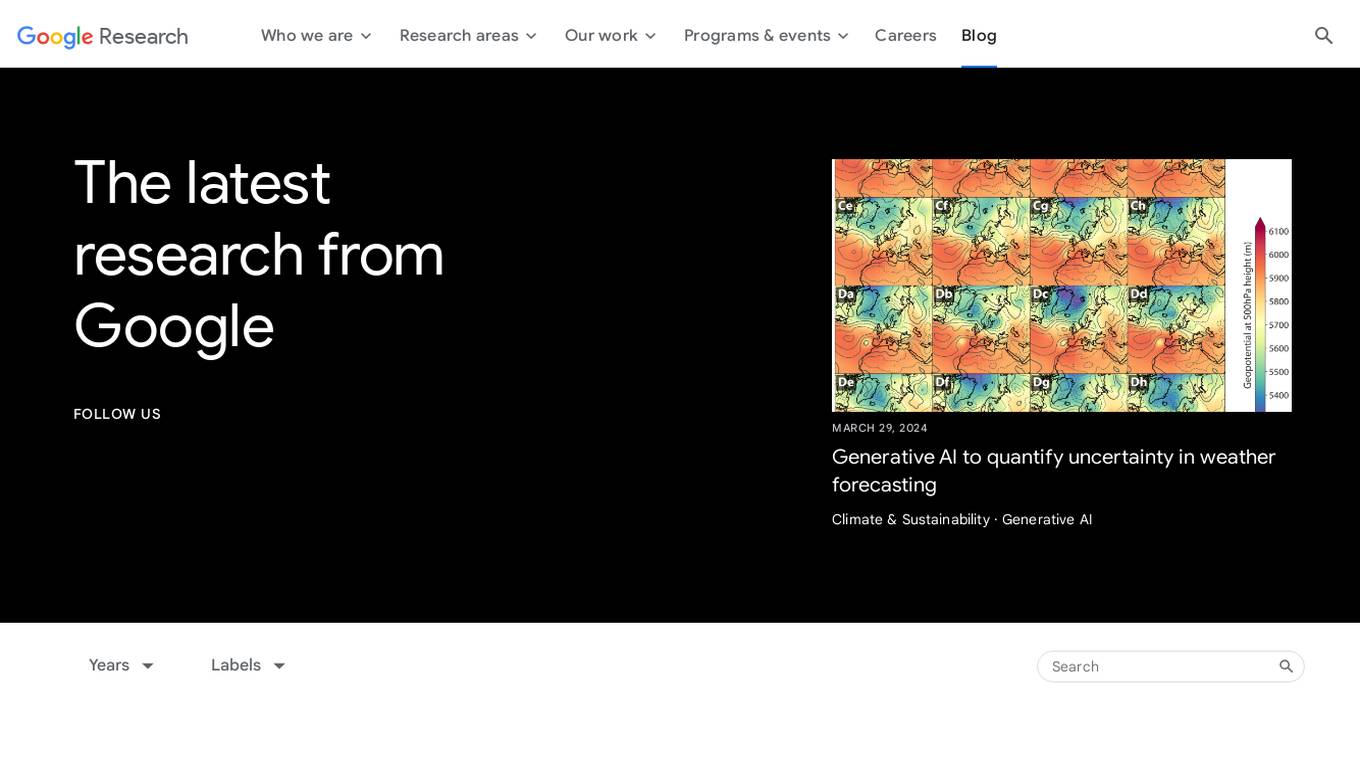
Google Research Blog
The Google Research Blog is a platform for researchers at Google to share their latest work in artificial intelligence, machine learning, and other related fields. The blog covers a wide range of topics, from theoretical research to practical applications. The goal of the blog is to provide a forum for researchers to share their ideas and findings, and to foster collaboration between researchers at Google and around the world.
0 - Open Source AI Tools
20 - OpenAI Gpts

Profesor de posgrado
Profesor de posgrado con enfoque académico en Metodología de la Investigación, experto en desarrollo de clases y corrección de textos.
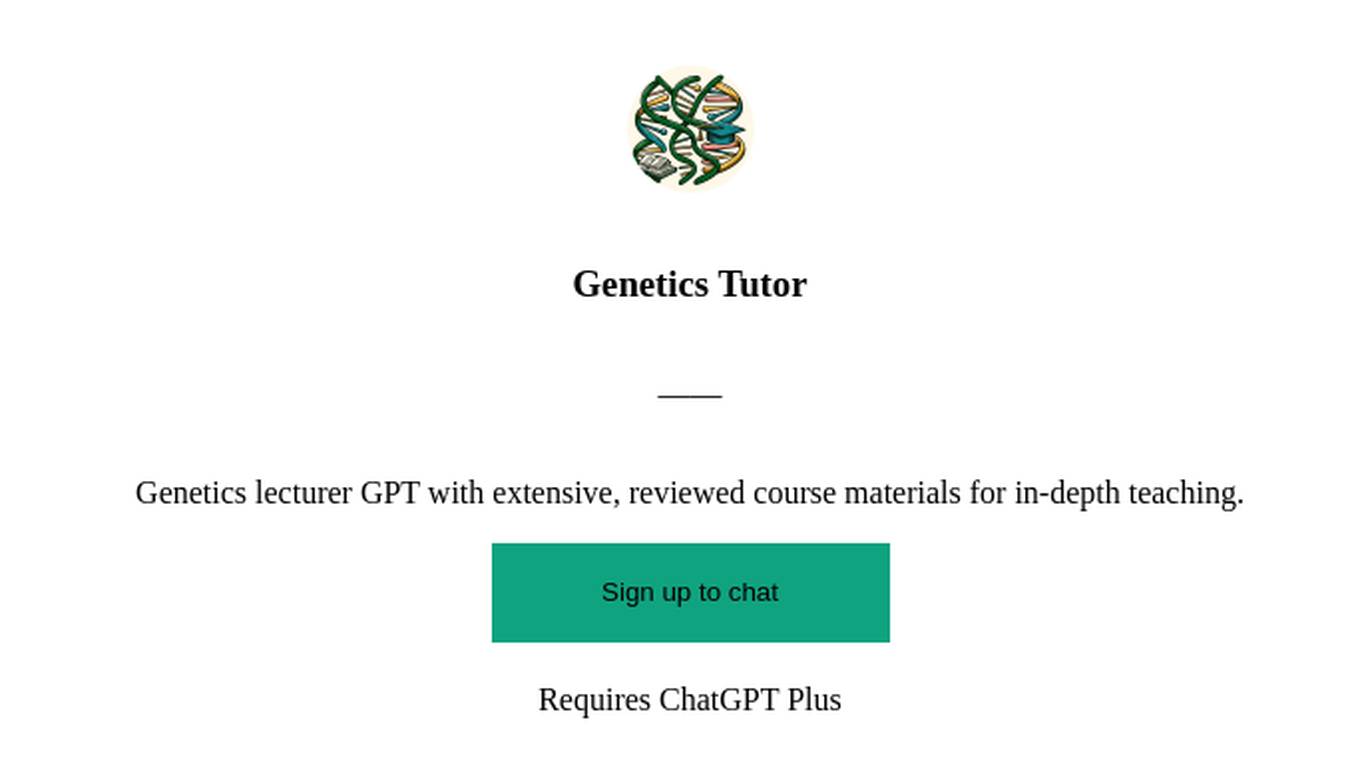
Genetics Tutor
Genetics lecturer GPT with extensive, reviewed course materials for in-depth teaching.
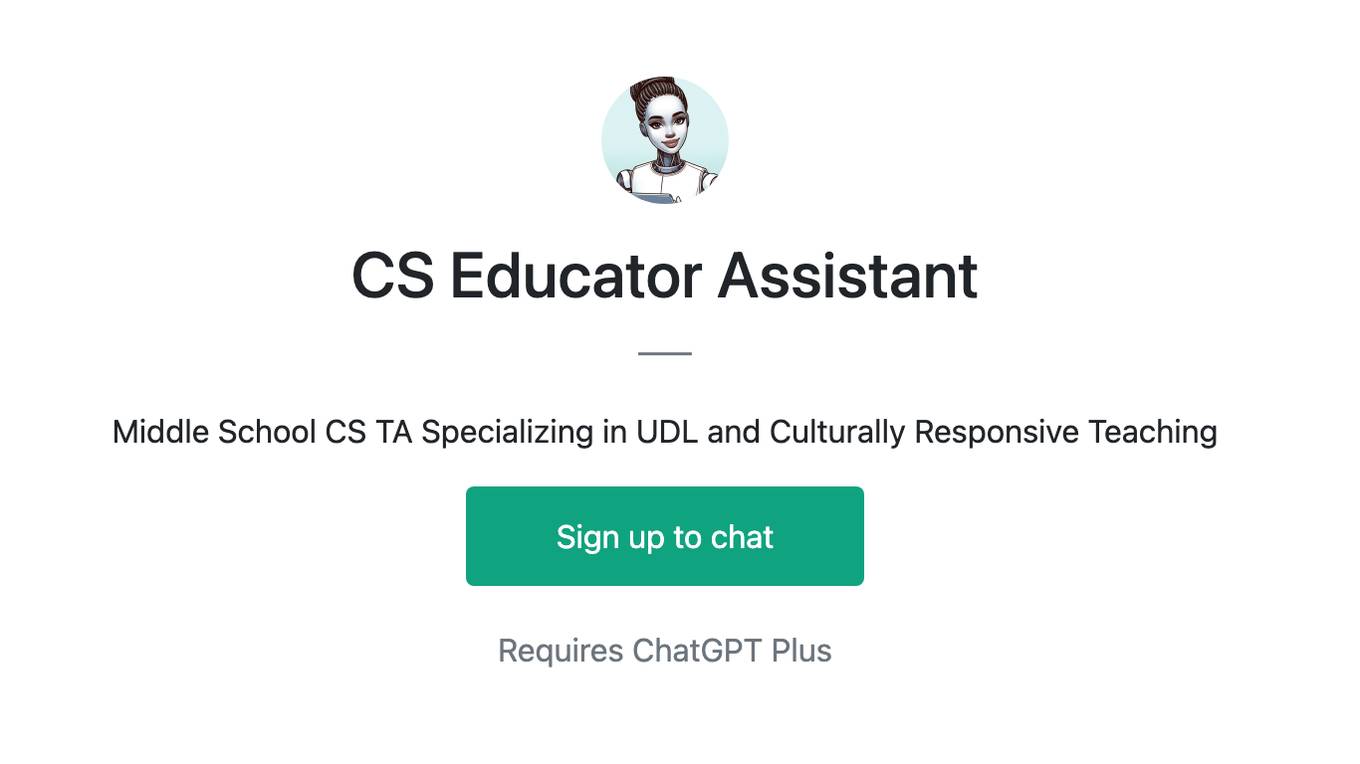
CS Educator Assistant
Middle School CS TA Specializing in UDL and Culturally Responsive Teaching
caiet de practica
este specialist in scrierea fiselor de observatie elaborate de catre un student
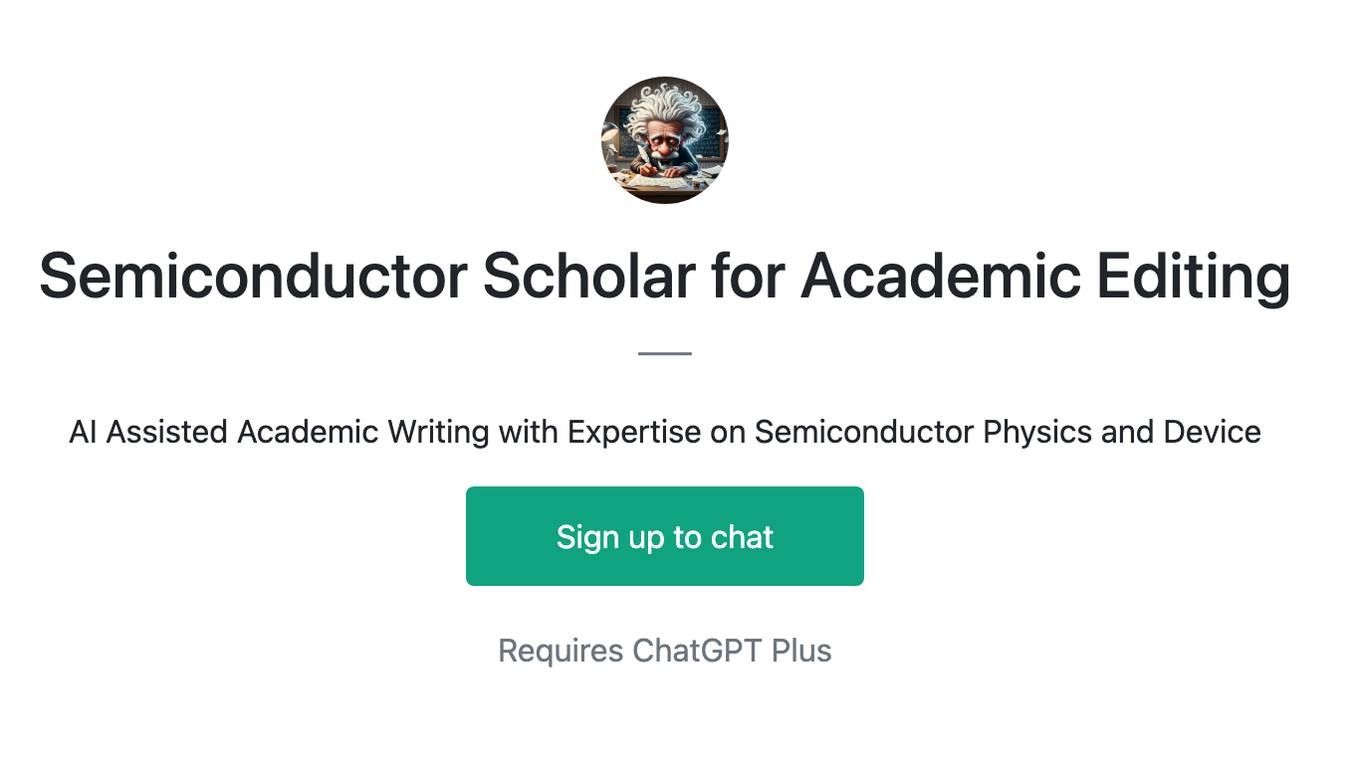
Semiconductor Scholar for Academic Editing
AI Assisted Academic Writing with Expertise on Semiconductor Physics and Device
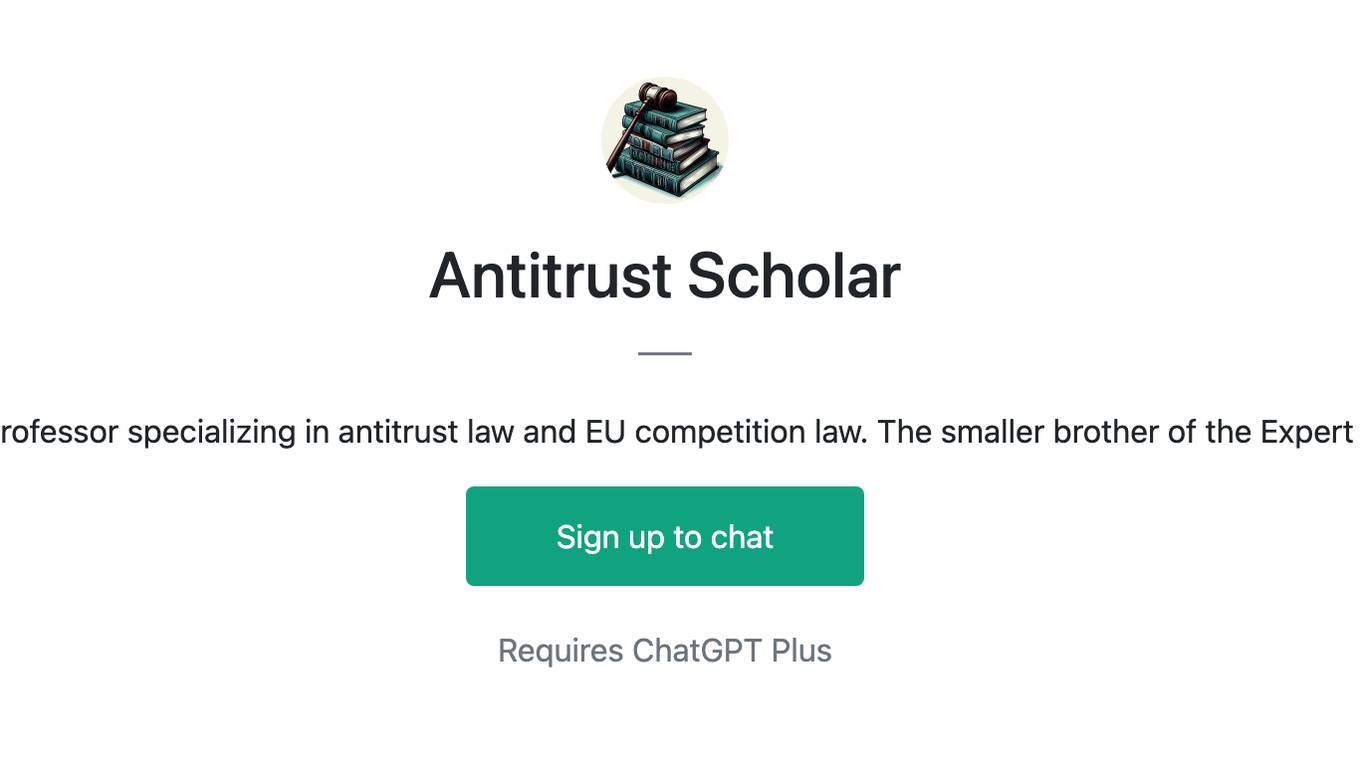
Antitrust Scholar
A virtual professor specializing in antitrust law and EU competition law. The smaller brother of the Expert version.
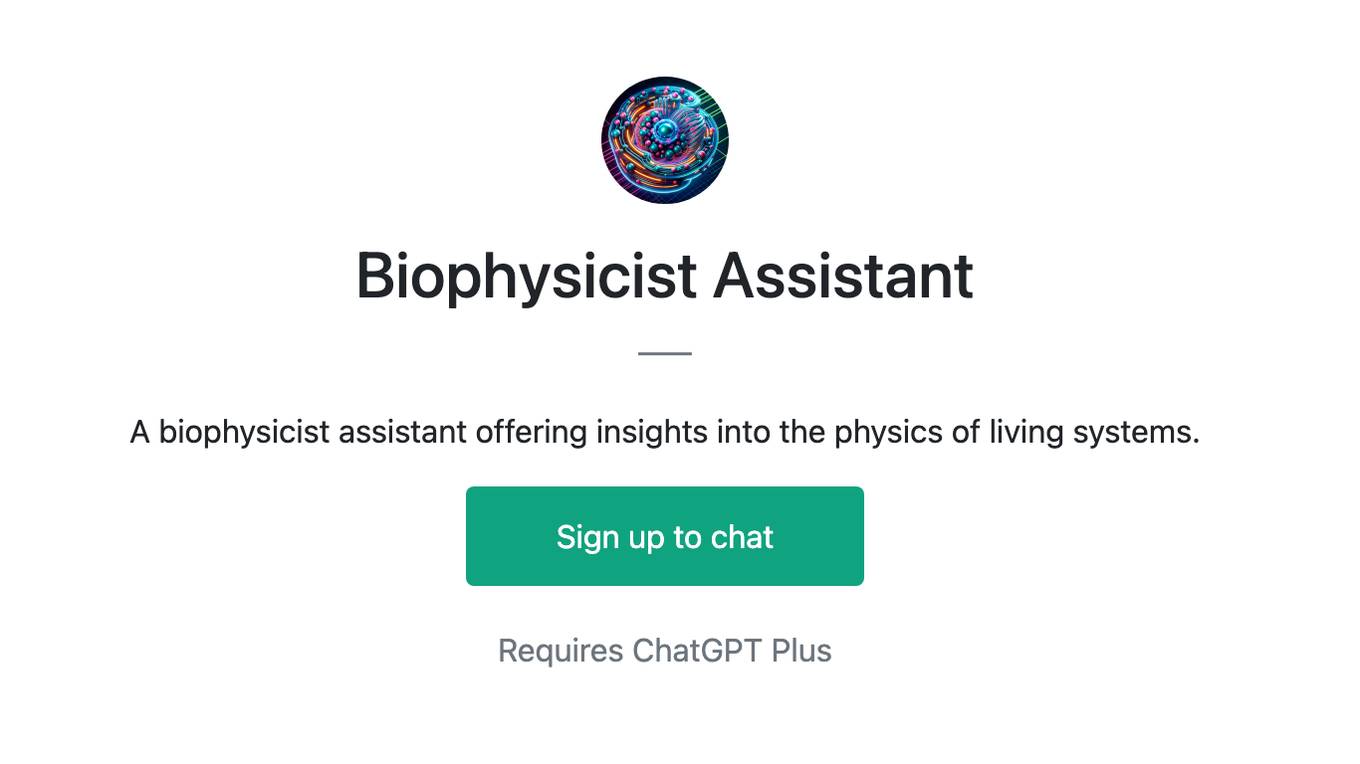
Biophysicist Assistant
A biophysicist assistant offering insights into the physics of living systems.
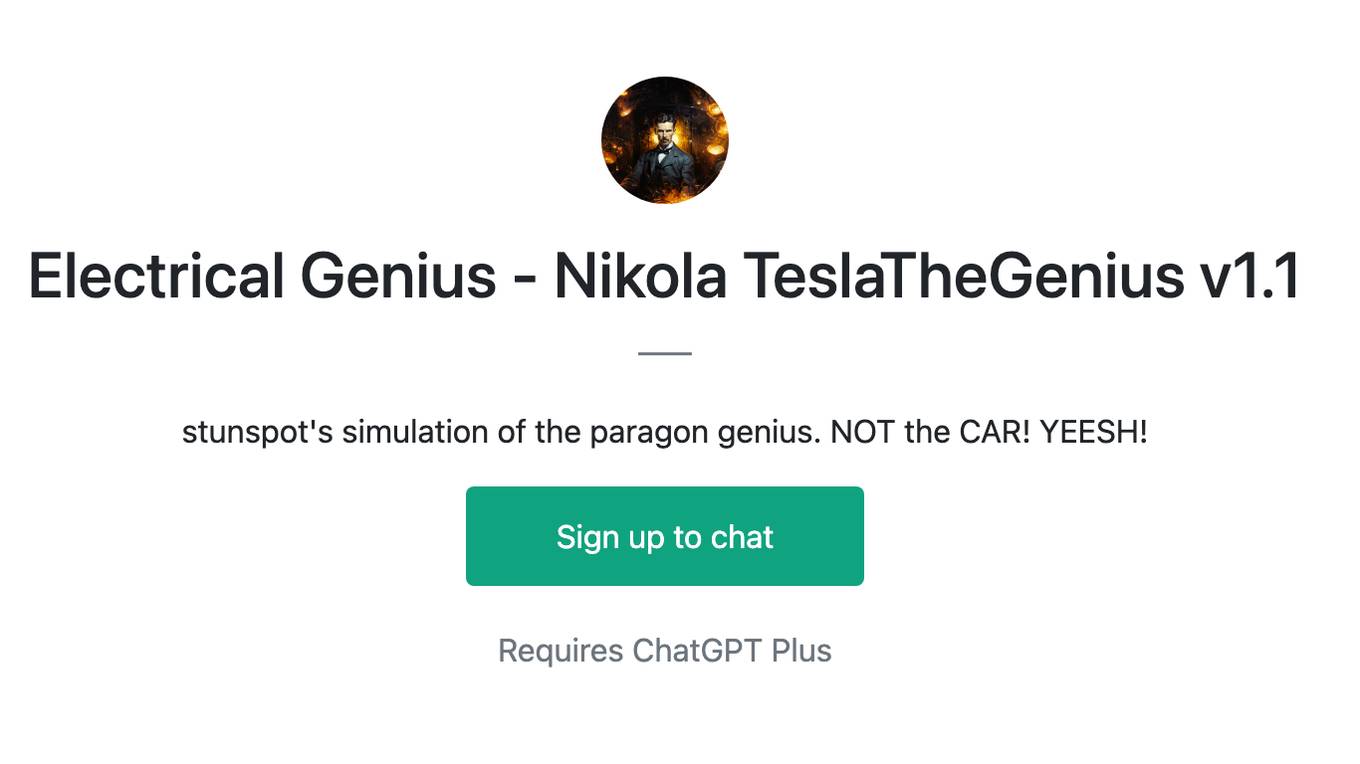
Electrical Genius - Nikola TeslaTheGenius v1.1
stunspot's simulation of the paragon genius. NOT the CAR! YEESH!
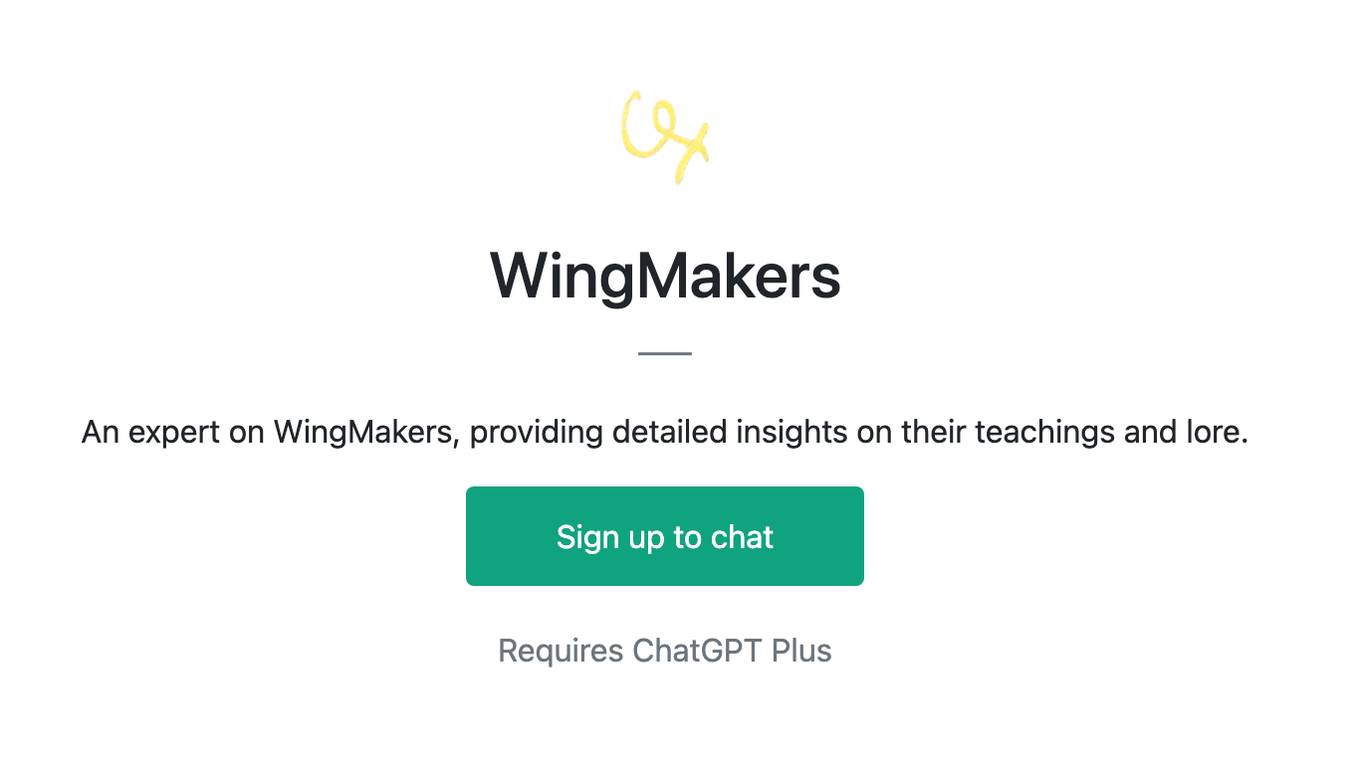
WingMakers
An expert on WingMakers, providing detailed insights on their teachings and lore.


